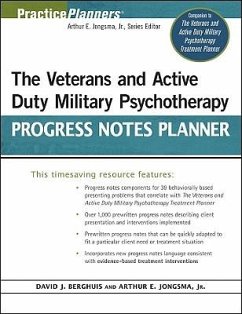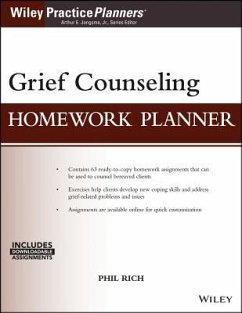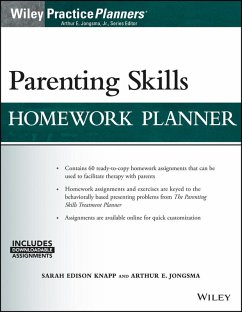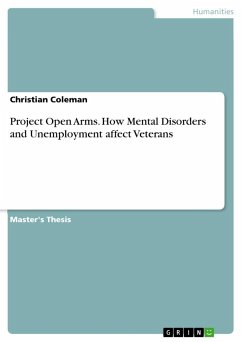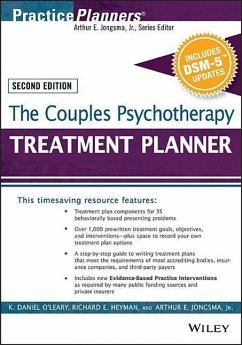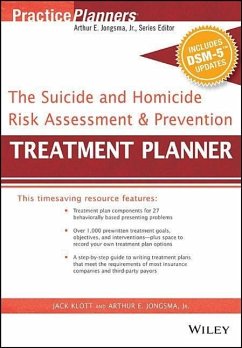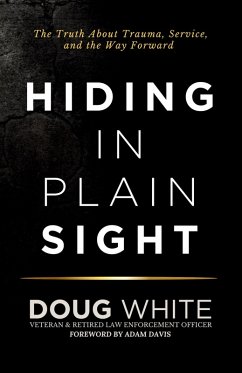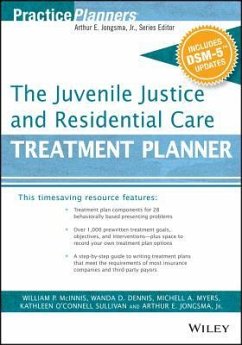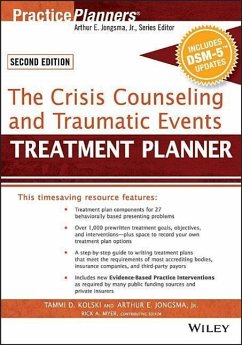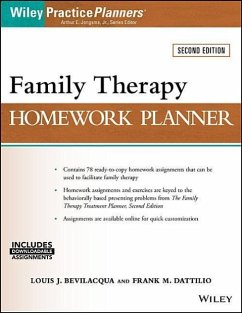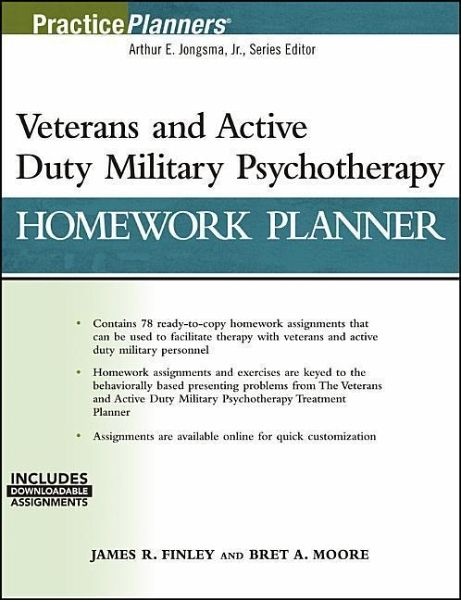
Veterans and Active Duty Military Psychotherapy Homework Planner, (with Download)
Versandkostenfrei!
Versandfertig in über 4 Wochen
65,99 €
inkl. MwSt.
Weitere Ausgaben:

PAYBACK Punkte
33 °P sammeln!
* Contains 78 ready-to-copy homework assignments that can be used to facilitate therapy with veterans and active duty military personnel * Homework assignments and exercises are keyed to the behaviorally based presenting problems from The Veterans and Active Duty Military Psychotherapy Treatment Planner * Assignments are available online for quick customization Features assignments and exercises to meet the changing needs of mental health professionals The Veterans and Active Duty Military Psychotherapy Homework Planner provides you with an array of ready-to-use, between-session assignments d...
* Contains 78 ready-to-copy homework assignments that can be used to facilitate therapy with veterans and active duty military personnel * Homework assignments and exercises are keyed to the behaviorally based presenting problems from The Veterans and Active Duty Military Psychotherapy Treatment Planner * Assignments are available online for quick customization Features assignments and exercises to meet the changing needs of mental health professionals The Veterans and Active Duty Military Psychotherapy Homework Planner provides you with an array of ready-to-use, between-session assignments designed to fit virtually every therapeutic mode. This easy-to-use sourcebook features: * 78 ready-to-copy exercises covering the most common issues encountered by veterans and active duty soldiers in therapy, such as anger management, substance abuse and dependence, bereavement, pre-deployment stress, and chronic pain after injury * A quick-reference format--the interactive assignments are grouped by behavioral problems including combat and operational stress reactions, postdeployment reintegration, survivor's guilt, anxiety, parenting problems related to deployment, and posttraumatic stress disorder * Expert guidance on how and when to make the most efficient use of the exercises * Assignments are cross-referenced to The Veterans and Active Duty Military Psychotherapy Treatment Planner--so you can quickly identify the right exercise for a given situation or problem * All exercises are available online for you to download and customize to suit you and your clients' unique styles and needs




